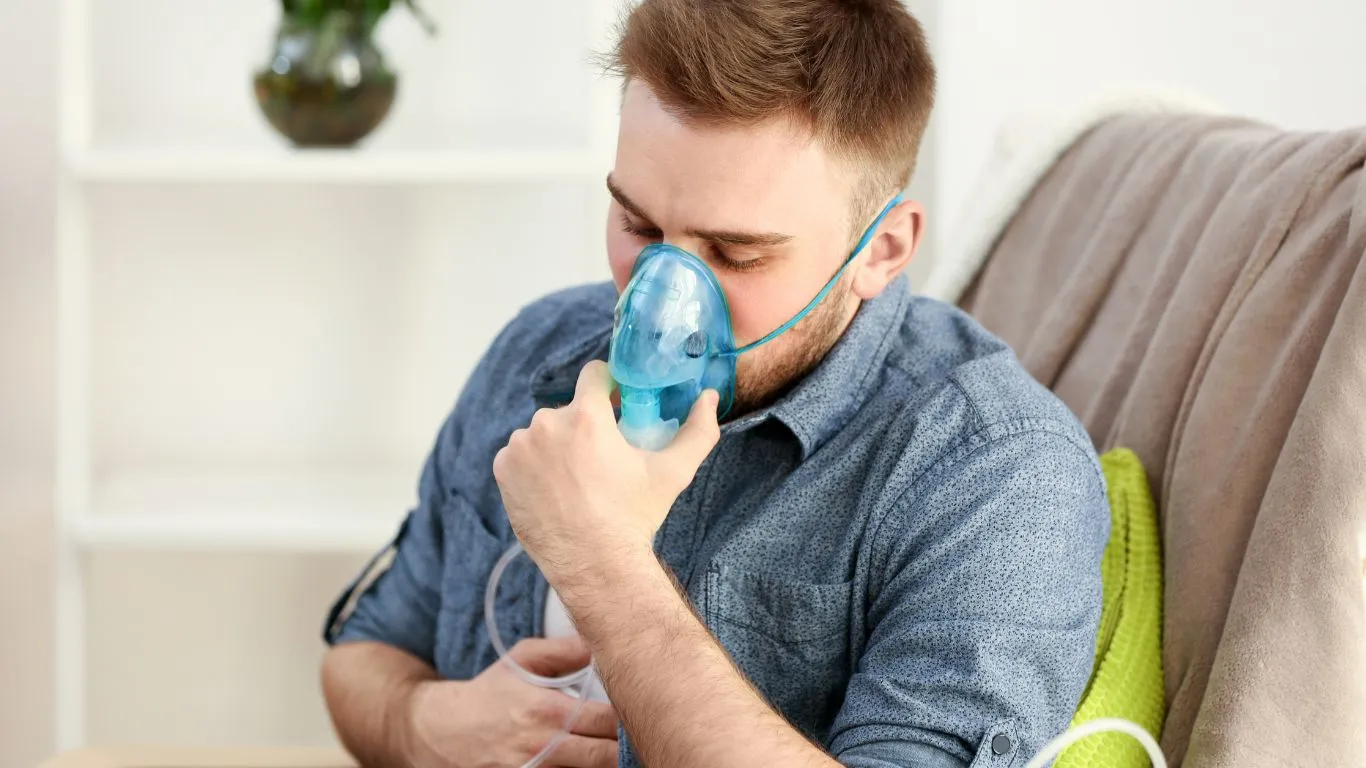Effects of Vaping on Asthma – What You Need to Know
Thinking about how vaping might affect your asthma? Well, you’re not alone! Vaping is often seen as a “safer” alternative to smoking, but for people with asthma, the effects can still be risky. Let’s dive into the details!
If you’ve got asthma, you’re probably already familiar with the constant effort to manage your symptoms. You avoid triggers, keep an inhaler close by, and try to stay on top of your medication. But then there’s the question of vaping. Is it really as safe as some make it out to be, especially for those with respiratory conditions like asthma?
In this article, we’re going to explore the effects of vaping on asthma—what it means for your lungs, what risks it might pose, and how to handle it if you’re an asthmatic who vapes.
What Is Vaping, and How Does It Work?
Before we dive into the specifics of how vaping impacts asthma, let’s quickly review what vaping actually is. Vaping involves inhaling vapor produced by an electronic cigarette (e-cigarette) or similar device. These devices heat a liquid (often called e-juice or vape juice) that contains nicotine, flavorings, and other chemicals. The vapor is then inhaled, instead of smoke, which is why many people think it’s a safer alternative to smoking.
That said, just because the process of vaping doesn’t involve burning tobacco doesn’t mean it’s harmless—especially when you’re dealing with asthma.

The Impact of Vaping on Asthma
Inflammation and Irritation
Asthma is a condition where the airways in the lungs become inflamed and narrow, making it harder to breathe. For people with asthma, anything that irritates the airways can trigger an attack. Unfortunately, vaping can be one of those irritants.
Even though e-cigarettes don’t produce the tar and carbon monoxide found in traditional cigarettes, the chemicals in the e-juice—such as propylene glycol, glycerin, and various flavoring agents—can still cause inflammation and irritation in the lungs. This can lead to worsened asthma symptoms, including wheezing, coughing, and shortness of breath.
Nicotine’s Role in Asthma
Many e-liquids contain nicotine, which is known to be a potent irritant to the lungs. For asthmatic individuals, nicotine can trigger bronchoconstriction (the tightening of the muscles around the airways) and increase airway sensitivity, making asthma symptoms more severe.
Nicotine can also interfere with your asthma medication, particularly bronchodilators (which help open up the airways). So, while vaping might seem like an alternative to smoking, it could still be messing with your asthma in ways you don’t expect.
Increased Risk of Respiratory Infections
Vaping has been shown to compromise the immune system and can impair the ability of your lungs to fight off infections. Asthmatic individuals are already at a higher risk of respiratory infections, such as bronchitis and pneumonia, so adding vaping into the mix can increase that risk even more.
The chemicals in the vapor, combined with the inflammation that vaping causes, make your lungs more vulnerable to bacterial and viral infections. That’s one more reason why vaping isn’t exactly asthma-friendly.

What the Research Says
There’s still a lot we don’t know about the long-term effects of vaping on respiratory health, but existing studies suggest that it’s not great for asthma. For example, a study published in the Journal of the American College of Cardiology found that vaping can lead to increased airway resistance, making it harder to breathe, especially in people with asthma.
Other research has shown that the flavoring chemicals in vape juice can also be harmful to the lungs, even without nicotine. Some of these flavoring agents are known to cause inflammation, damage to lung tissue, and other respiratory problems, which could make asthma symptoms worse.

What Are the Risks for People with Asthma Who Vape?
So, what does this all mean for people with asthma who vape? Here are some of the risks to keep in mind:
1. Worsening of Asthma Symptoms
As mentioned earlier, vaping can trigger inflammation and irritation in the airways, leading to worsened asthma symptoms. This can include increased coughing, wheezing, and difficulty breathing, all of which can make daily life more challenging for those with asthma.
2. Increased Frequency of Asthma Attacks
Because vaping introduces harmful chemicals into the lungs, it can increase the frequency and severity of asthma attacks. Even if you’re careful with your asthma management, vaping might still make it more difficult to control your symptoms.
3. Poorer Long-Term Lung Health
While vaping might seem less harmful than smoking, it’s still not good for your lungs. Over time, regular vaping can lead to chronic issues like reduced lung function, making it harder to breathe even when you’re not having an asthma attack.

Conclusion
So, what’s the bottom line here? While vaping might seem like a safer alternative to smoking, it’s not without risks—especially for people with asthma. The chemicals in e-liquids, along with the nicotine, can irritate your lungs, worsen asthma symptoms, and increase your risk of respiratory infections.
If you have asthma and vape, it’s essential to stay on top of your symptoms and talk to your doctor about the best ways to manage your condition. In many cases, quitting vaping may be the best choice for your long-term lung health.
Appendices
References
- Journal of the American College of Cardiology, 2020. The Effects of E-Cigarettes on Airway Resistance and Lung Health.
- American Lung Association, 2021. Vaping and Its Impact on Respiratory Health.
- Centers for Disease Control and Prevention (CDC), 2022. E-cigarettes and Health Risks.
FAQs
- Can vaping cause an asthma attack? Yes, vaping can irritate your airways and trigger asthma attacks, especially if the e-liquid contains nicotine or harmful chemicals.
- Does nicotine affect asthma? Yes, nicotine can tighten the airways and increase sensitivity to asthma triggers, making symptoms worse.
- Is it better to vape than smoke if you have asthma? While vaping might expose you to fewer toxins than smoking, it’s still harmful to your lungs and can make asthma symptoms worse.
- Can vaping lead to long-term lung damage? Yes, regular vaping can cause inflammation and damage to the lungs, which can contribute to chronic breathing problems.
- Are there safer alternatives to smoking and vaping for people with asthma? The best option for people with asthma is to avoid both smoking and vaping altogether and focus on managing asthma with medications and lifestyle changes.
Disclaimer: The information in this article is for educational purposes only and should not be taken as medical advice. Always consult with a healthcare provider for advice on managing asthma and the risks associated with vaping. Individual health conditions vary, and professional guidance is crucial for personalized care.

Bianca Nala is a compassionate Nurse Practitioner with a strong background in primary and respiratory care. As a health writer for Healthusias.com, she combines her clinical expertise with a talent for clear, relatable storytelling to help readers better understand their health. Bianca focuses on topics like asthma, COPD, chronic cough, and overall lung health, aiming to simplify complex medical topics without losing accuracy. Whether she’s treating patients or writing articles, Bianca is driven by a single goal: making quality healthcare knowledge accessible to everyone.







